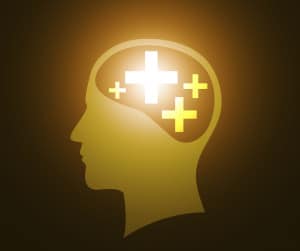
What is a neuropsychologist?
A neuropsychologist is a clinical psychologist with specialized training in the applied science of brain-behavior relationships. Neuropsychologists use cognitive and psychological tests to assess, diagnose, and provide treatment recommendations for individuals with neurological, medical, and psychiatric conditions. These assessments provide a better understanding of each patient’s cognitive, behavioral, and emotional strengths and weaknesses. A thorough definition can be found here at the National Academy of Neuropsychology’s website.
Neuropsychologists hold licenses in clinical psychology. However, not every clinical psychologist has the training necessary to competently practice neuropsychology. Therefore, when looking at a neuropsychologist’s credentials, it is recommended to find one that is board-certified by the American Board of Professional Psychology in the specialty of clinical neuropsychology (ABPP-CN), or the American Board of Professional Neuropsychology (ABN). There are also neuropsychologists who are not board-certified, but may have met the Houston Conference training standards that is accepted within the field of neuropsychology.
How is a neuropsychological evaluation performed?
Typically, a neuropsychological assessment will involve: A comprehensive interview with the neuropsychologist to gather information pertaining to the questions at hand, review of relevant records (for example medical records or school reports), and neuropsychological (cognitive and psychological) testing. After the evaluation, the neuropsychologist writes a report that presents the results of the evaluation, a diagnosis and conceptualization of how the individual is functioning, and appropriate recommendations that will lead to the next steps of treatment planning. Feedback and education on the results of the evaluation are provided to patients whenever possible.
What does a neuropsychological evaluation test for?
The testing looks at several areas of cognition associated with brain functioning. These domains include:
- General intellectual abilities
- Academic achievement
- Motor and sensory functioning
- Attention and processing speed
- Expressive and receptive language abilities
- Visuospatial/perceptual abilities
- Learning & memory
- Executive functions (higher-order thinking abilities, i.e. problem-solving, abstract reasoning, etc.)
- Personality and emotional functioning
How long does a neuropsychological evaluation take?
It depends on the nature of the referral question. It can typically take anywhere from two hours up to ten hours of face-to-face time with the patient. For longer evaluations, it is possible to break it up into different days.
What happens after the neuropsychological evaluation?
The neuropsychological report should help to clarify diagnostic questions and provide a treatment plan. For most clinical evaluations, the neuropsychologist should have a feedback session with the patient to discuss the results of the evaluation, the diagnosis, and the recommended course of treatment. Depending on the diagnosis, there may be recommendations for different specialists to provide treatment. The neuropsychological evaluation is a valuable tool to plan out a course of action to help treat conditions.
What are some reasons to get a neuropsychological evaluation?
A neuropsychlogical assessment with adults would be useful for a number of reasons that include:
- Diagnostic clarification for treatment planning
- Differentiate between psychiatric and neurologic conditions
- Help determine the cause of cognitive or emotional symptoms
- Identify cognitive strengths and weaknesses
- Diagnose or rule out attention deficit/hyperactivity disorder (ADHD) and specific learning disabilities
- Rule out and differentiate between different types of dementias (ex: Alzheimer’s disease vs. frontotemporal dementias vs. vascular dementia vs. Lewy body dementia, among others)
- Measuring changes in cognitive functions after a traumatic brain injury or acquired neurologic conditions such as strokes (cerebrovascular accident), anoxic brain injuries, multiple sclerosis, toxic chemical exposure, encephalitis, brain tumors, or post-surgical changes.
How can I schedule a neuropsychological evaluation at PNBC?
Please click on this link to learn how to make a referral or make an appointment.
Author: Delia Silva, PsyD, ABPP-CN
